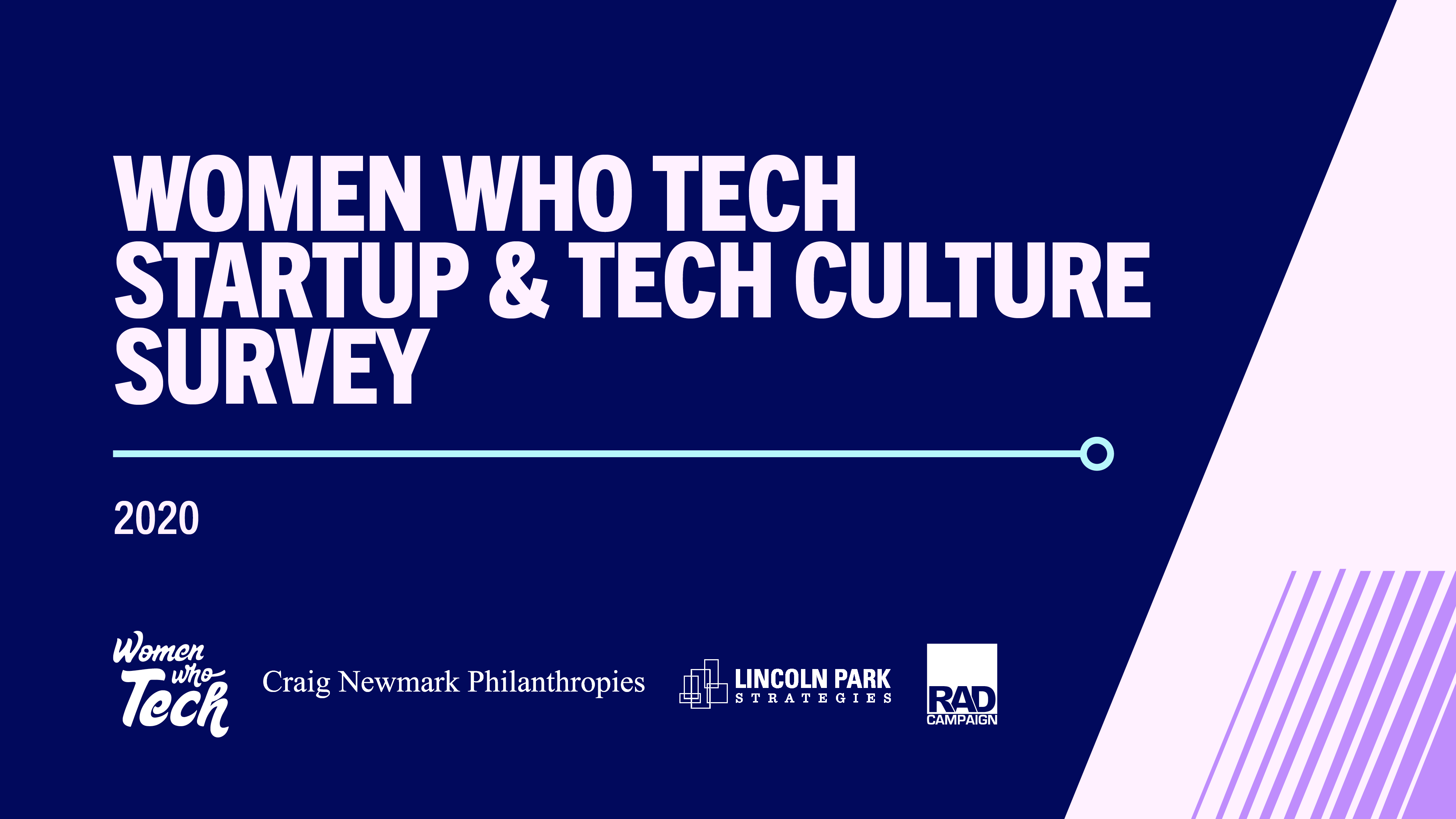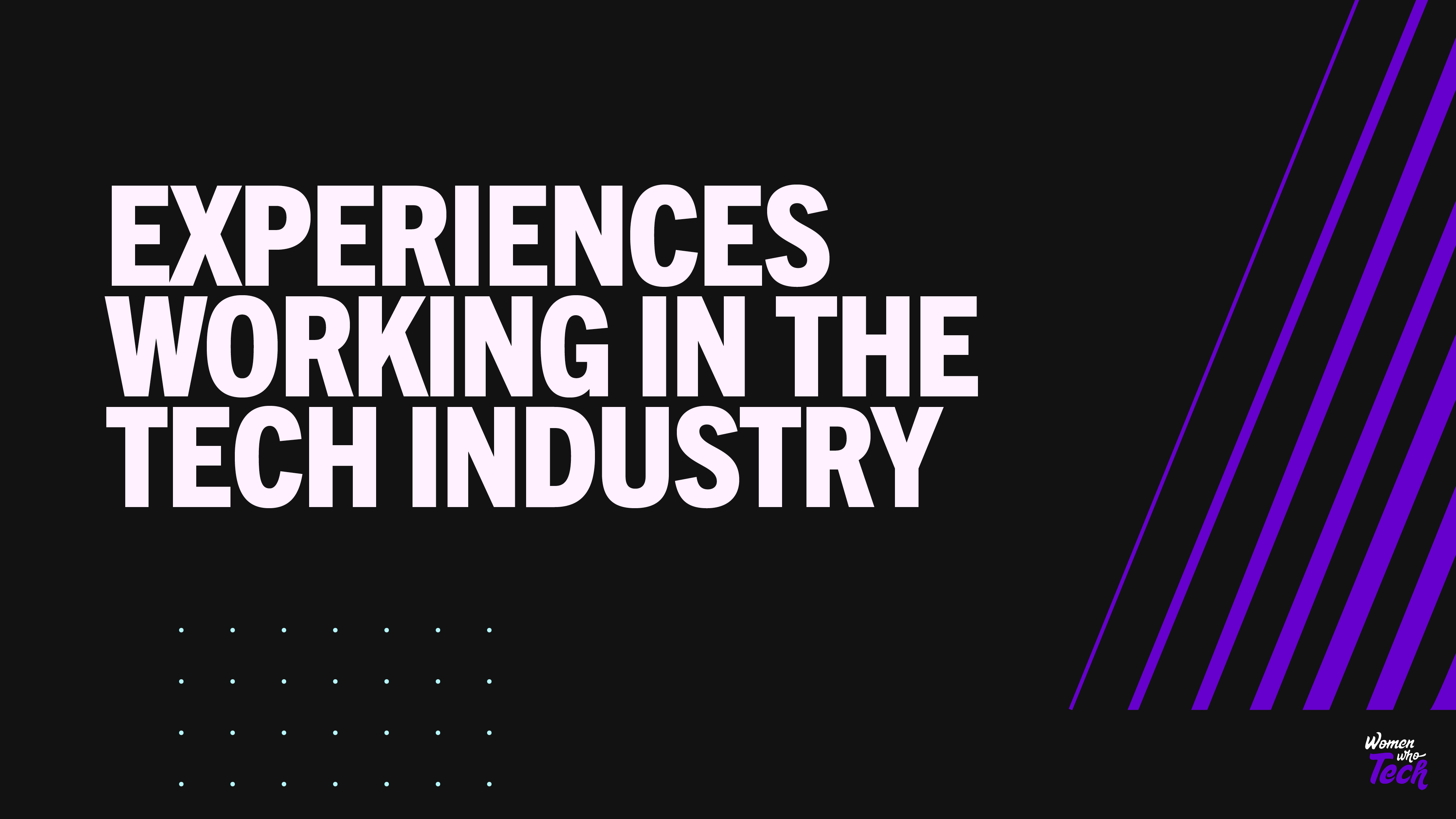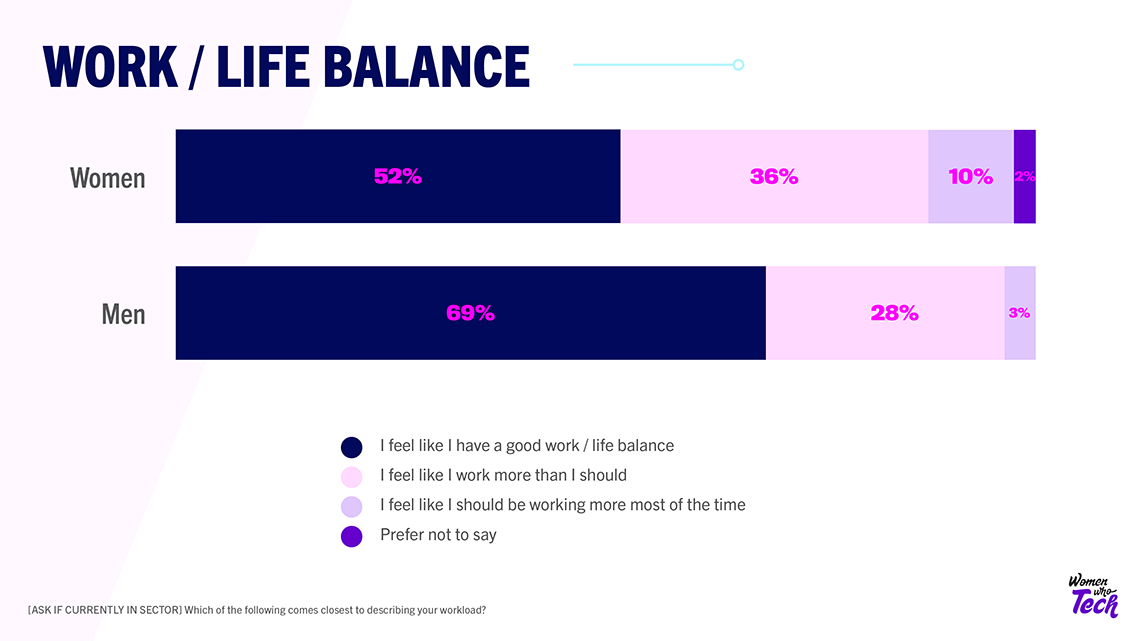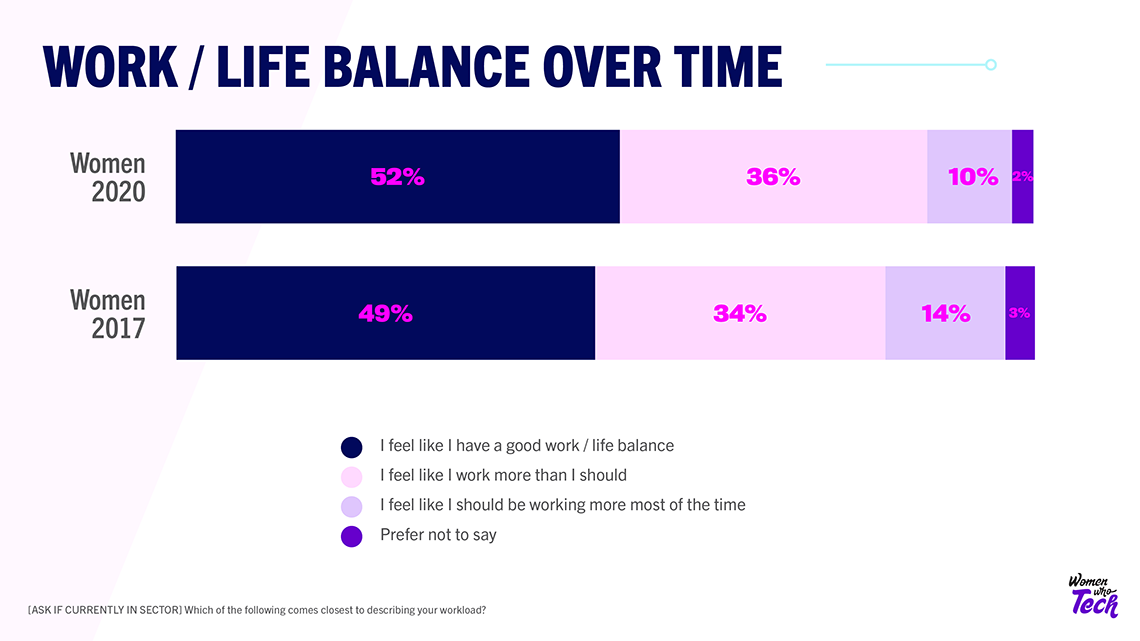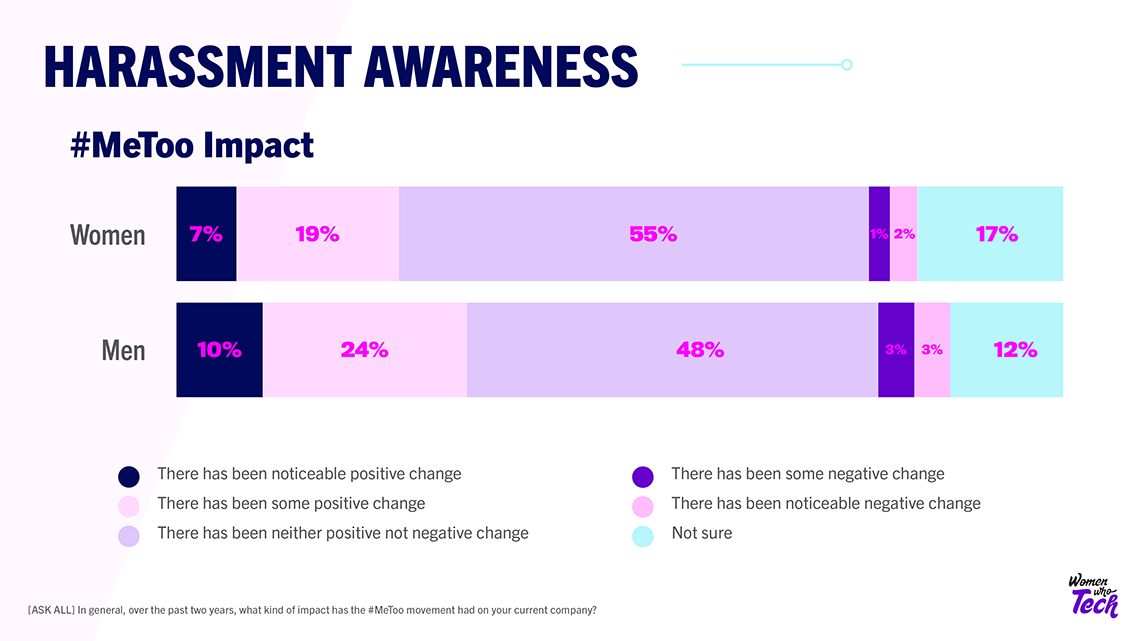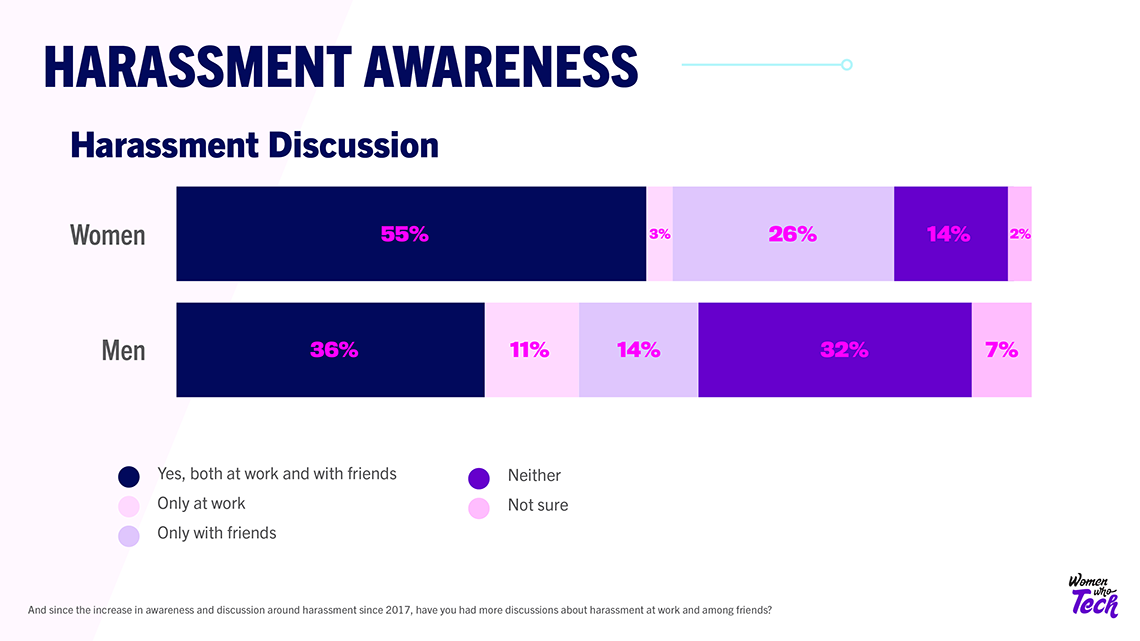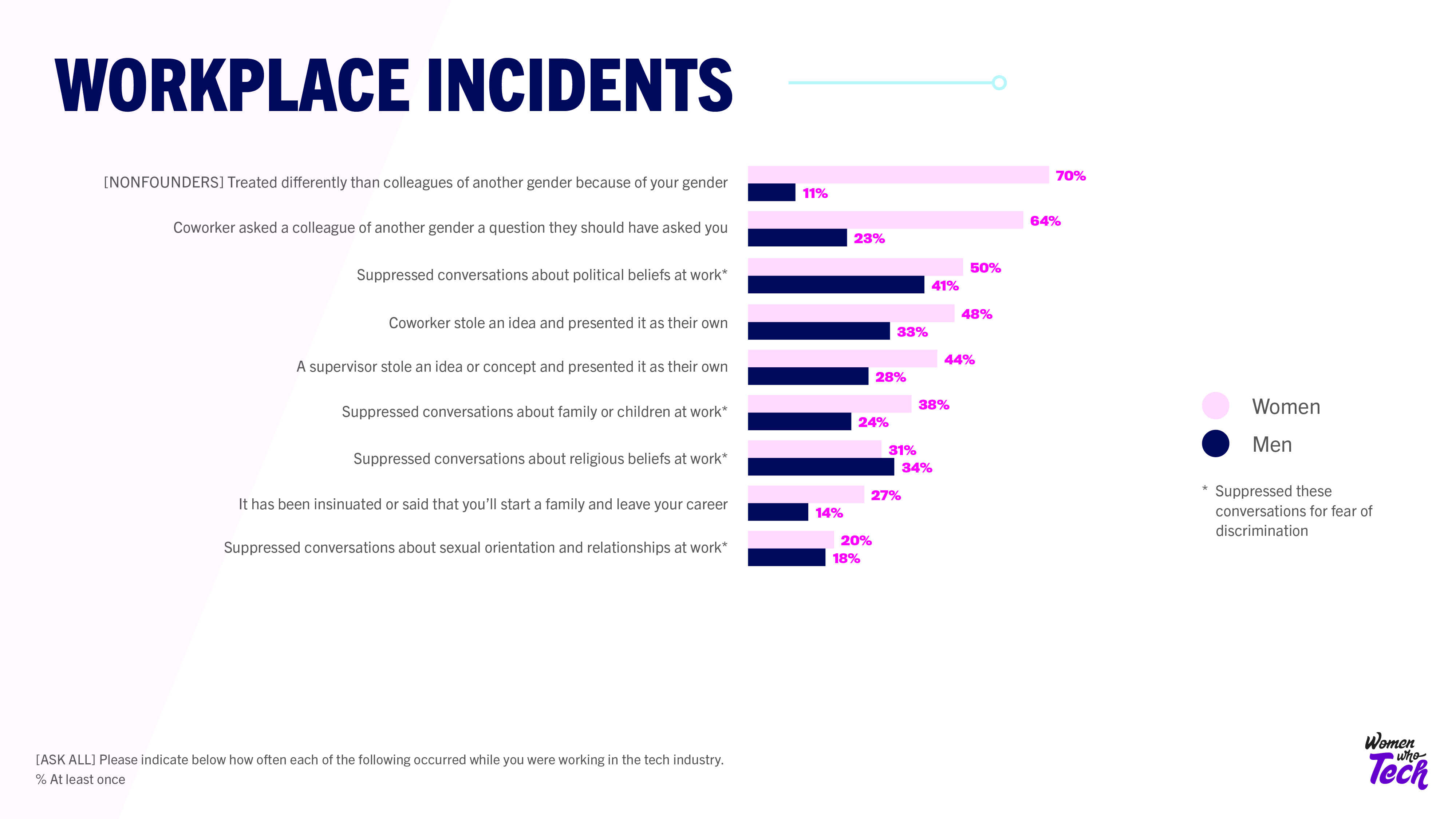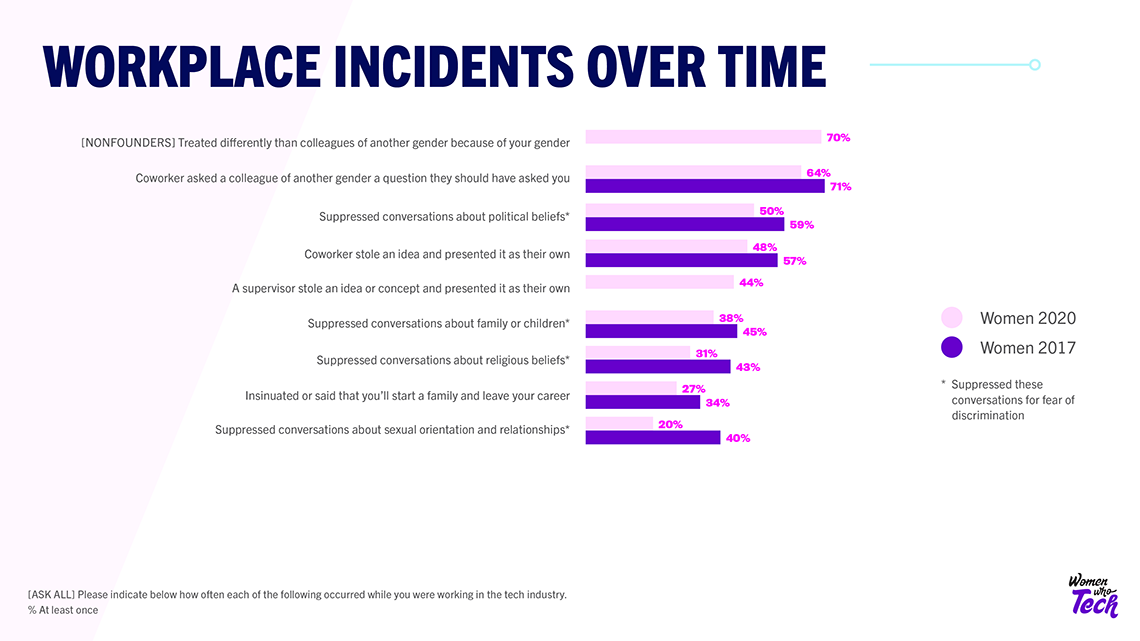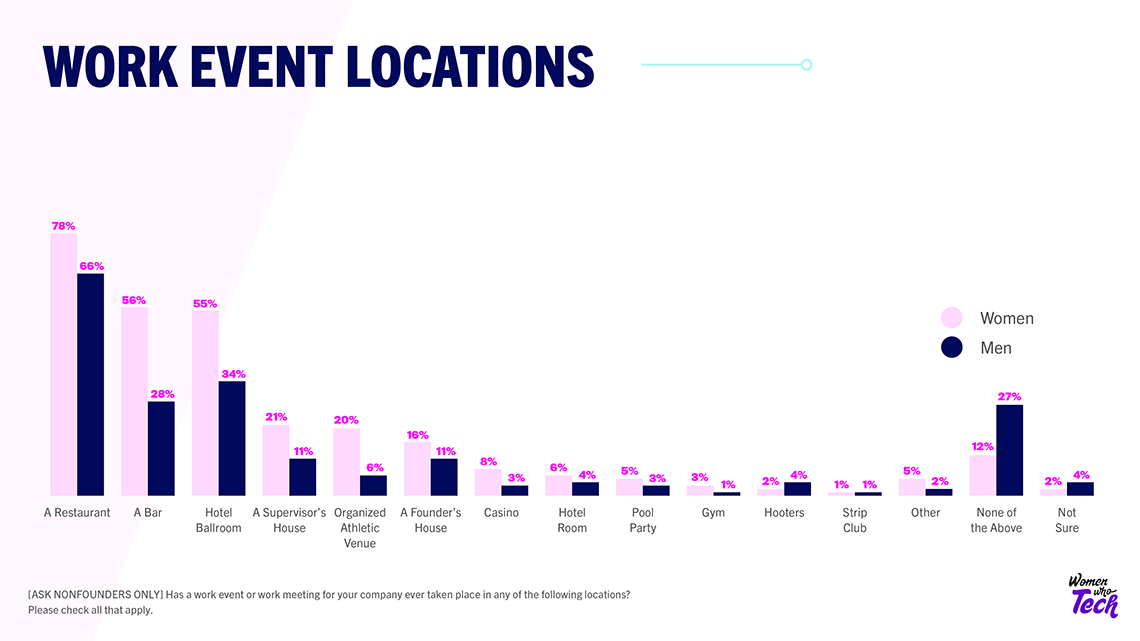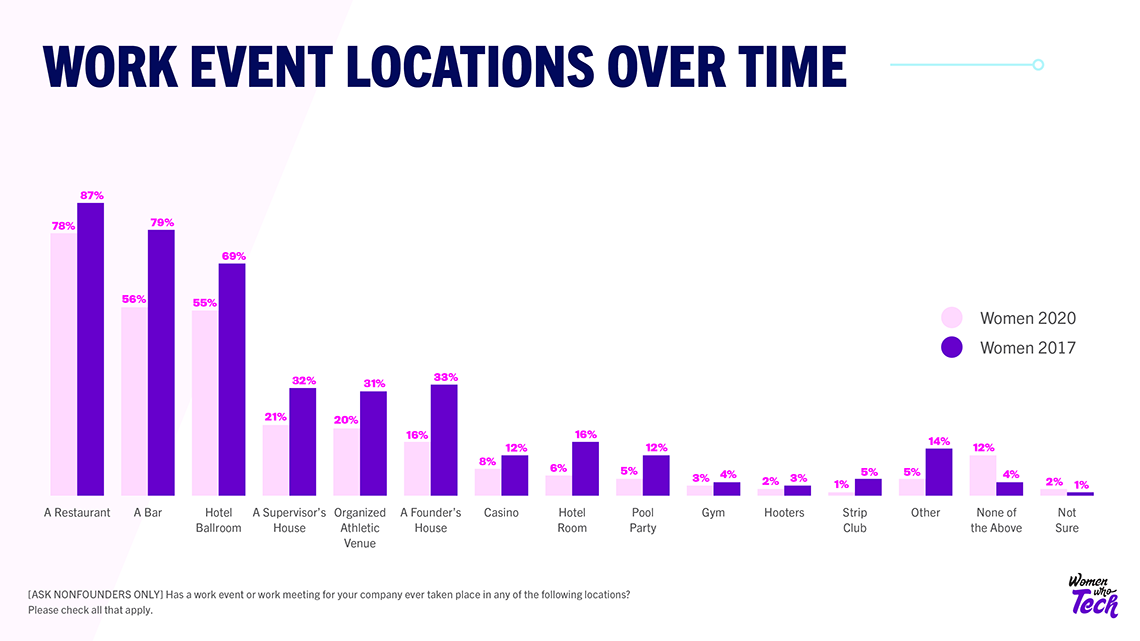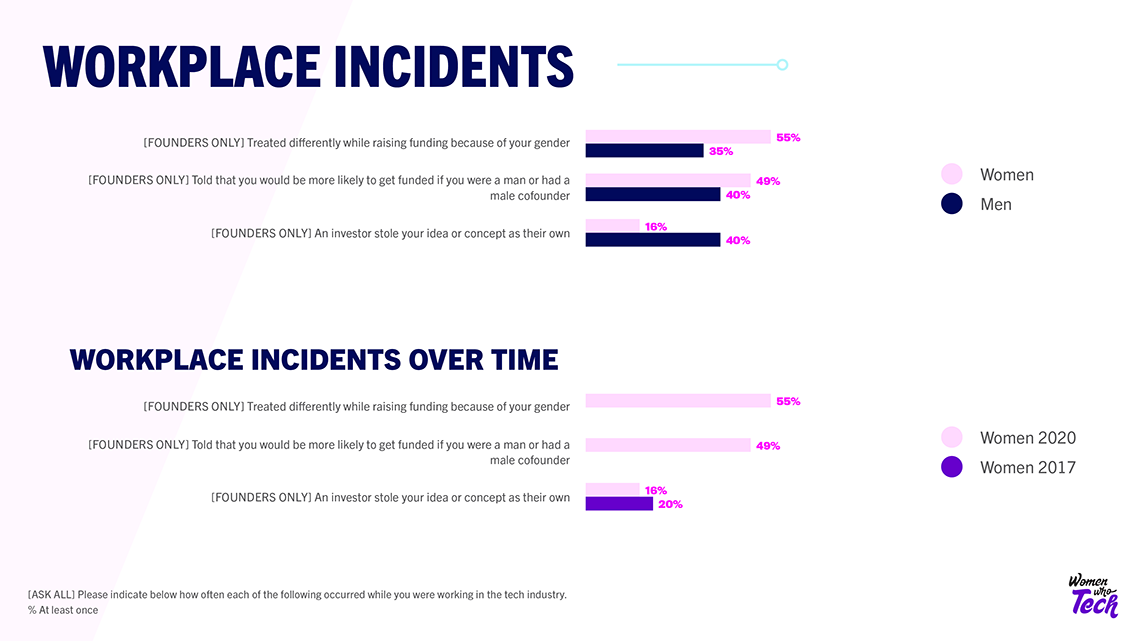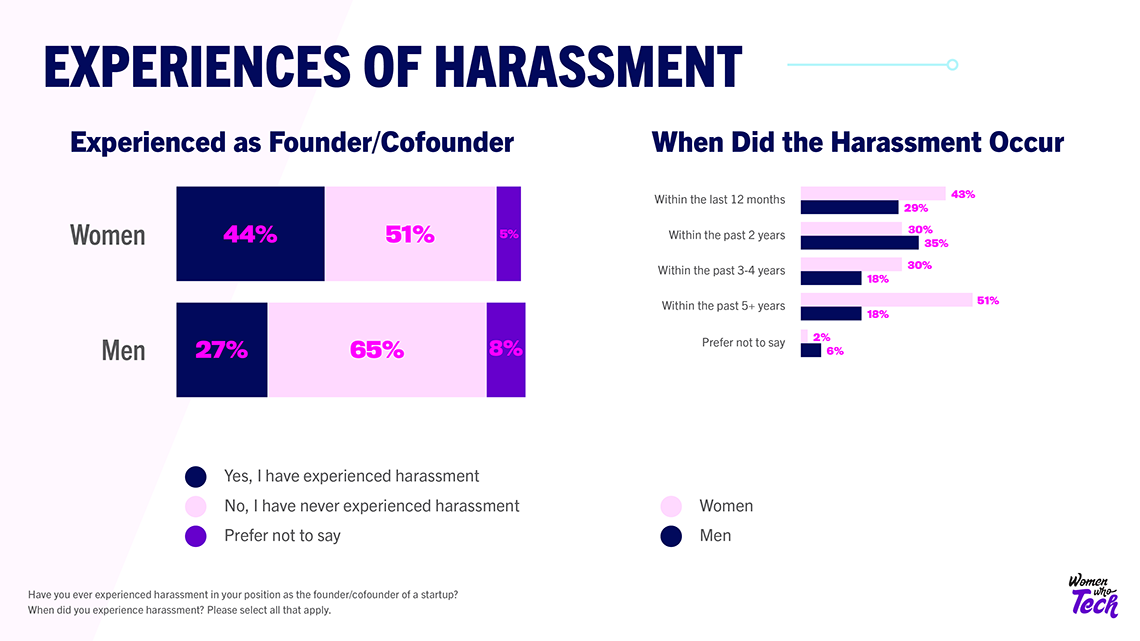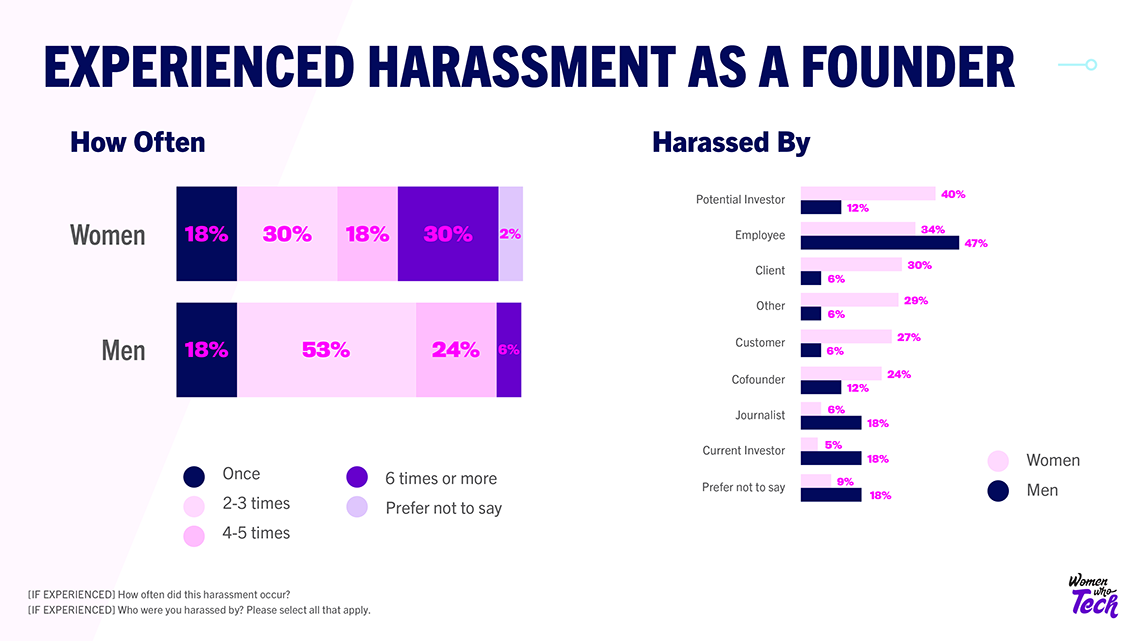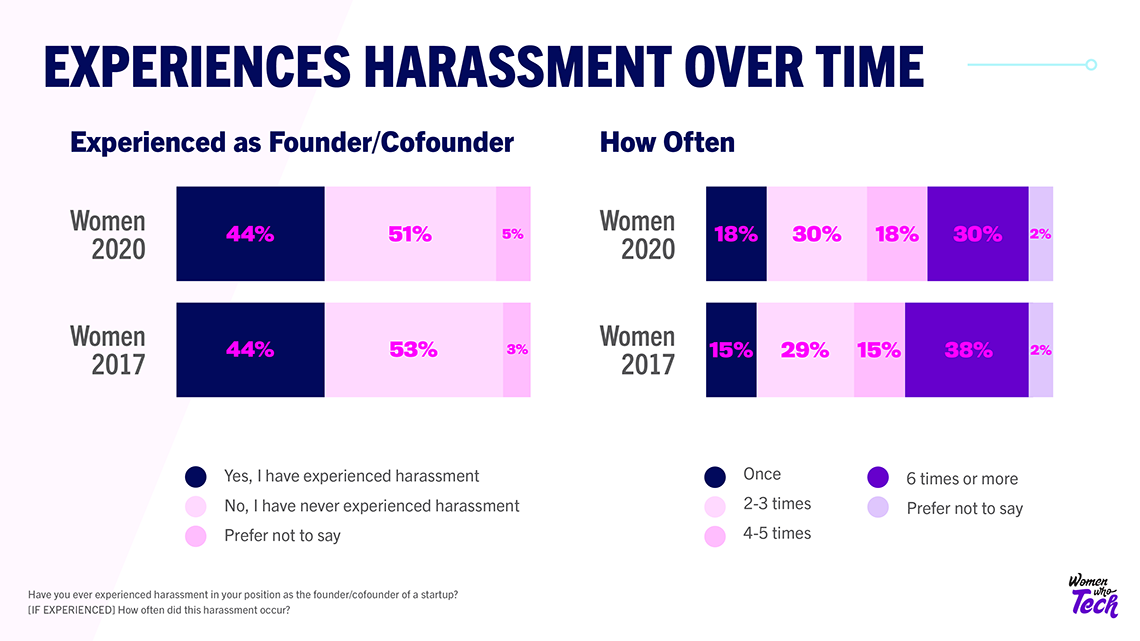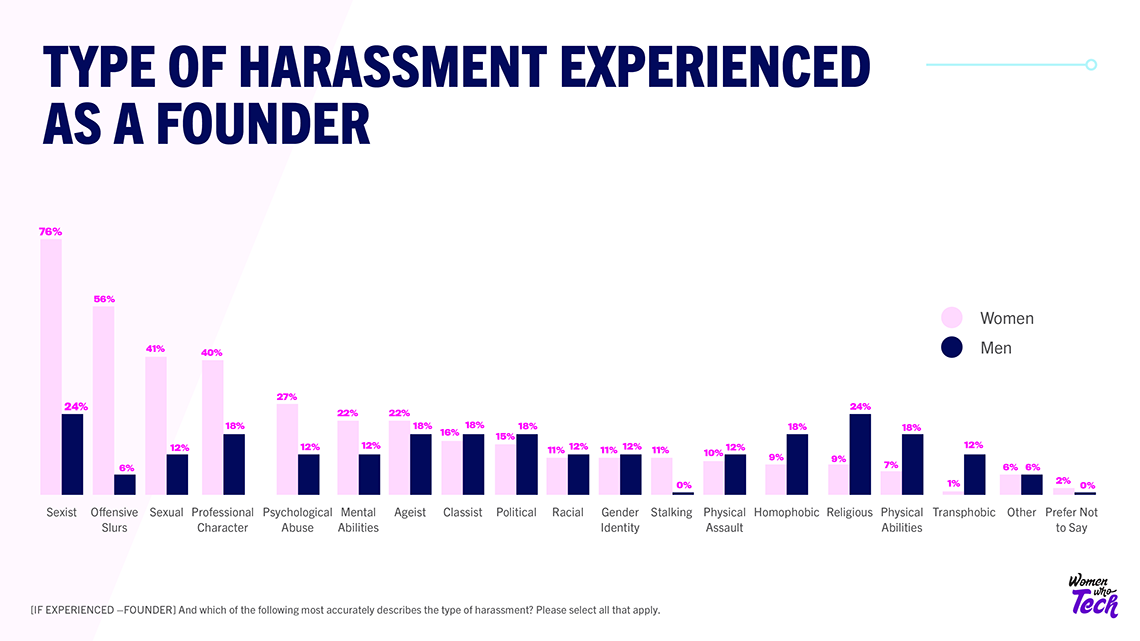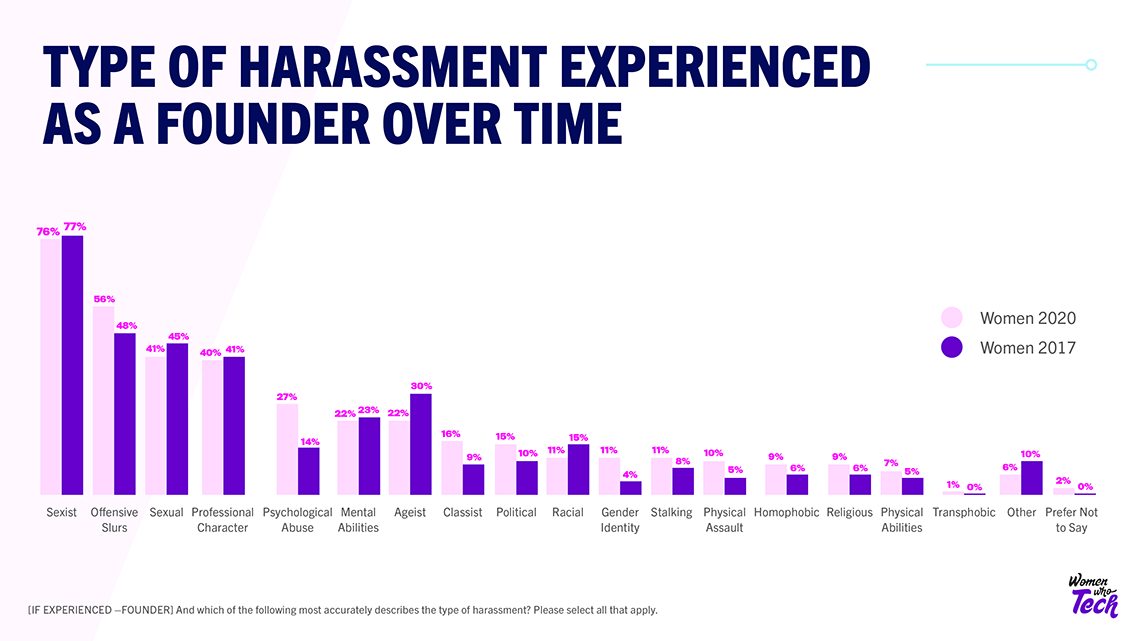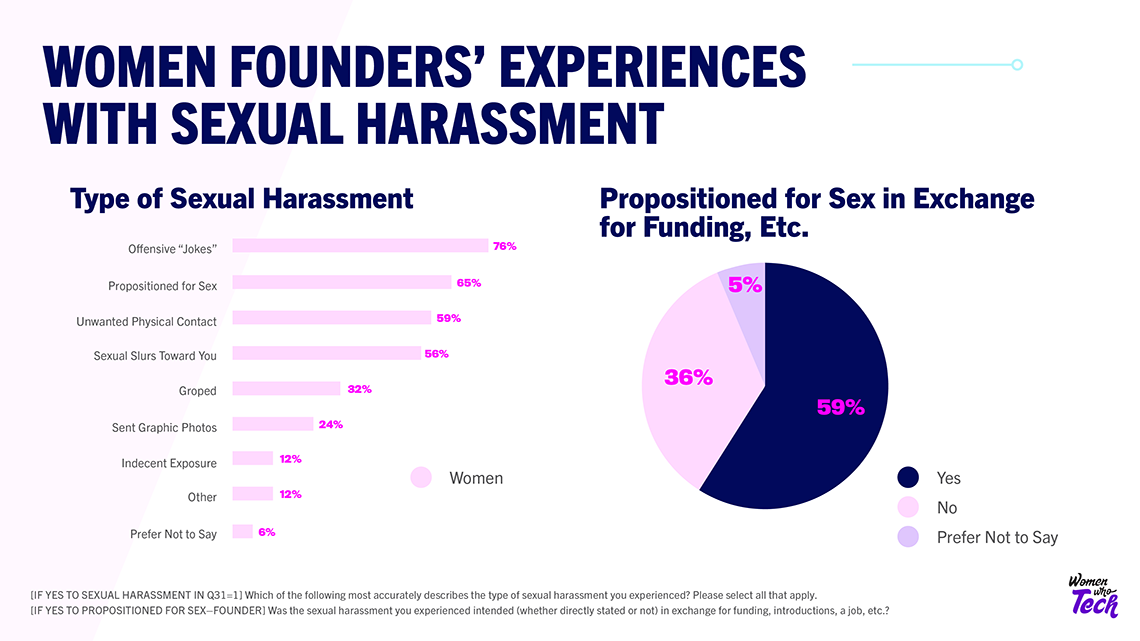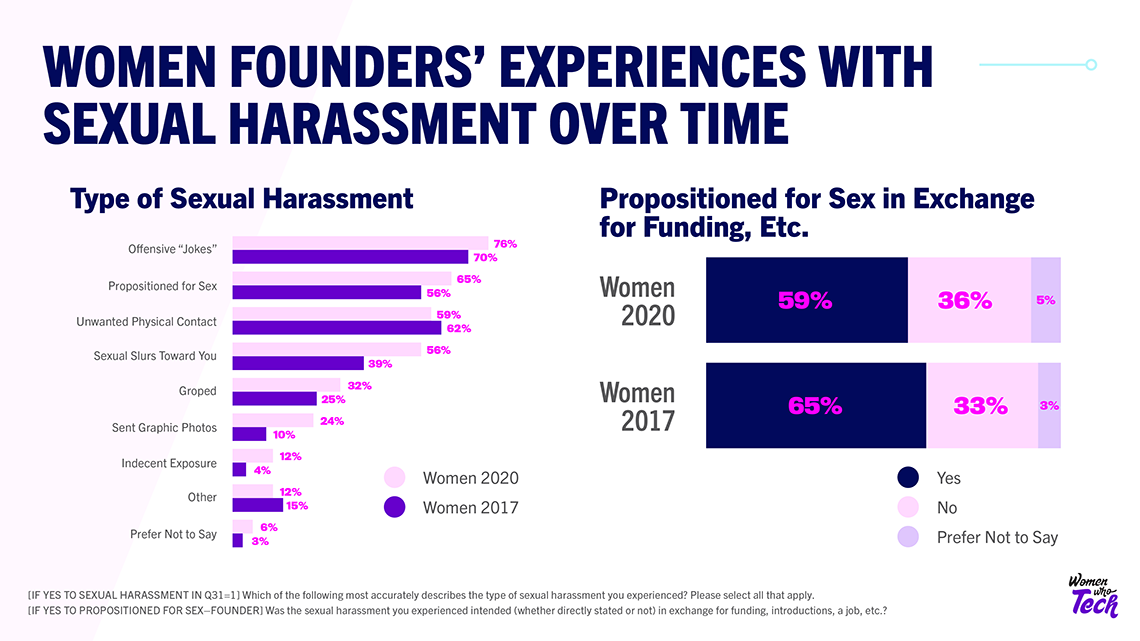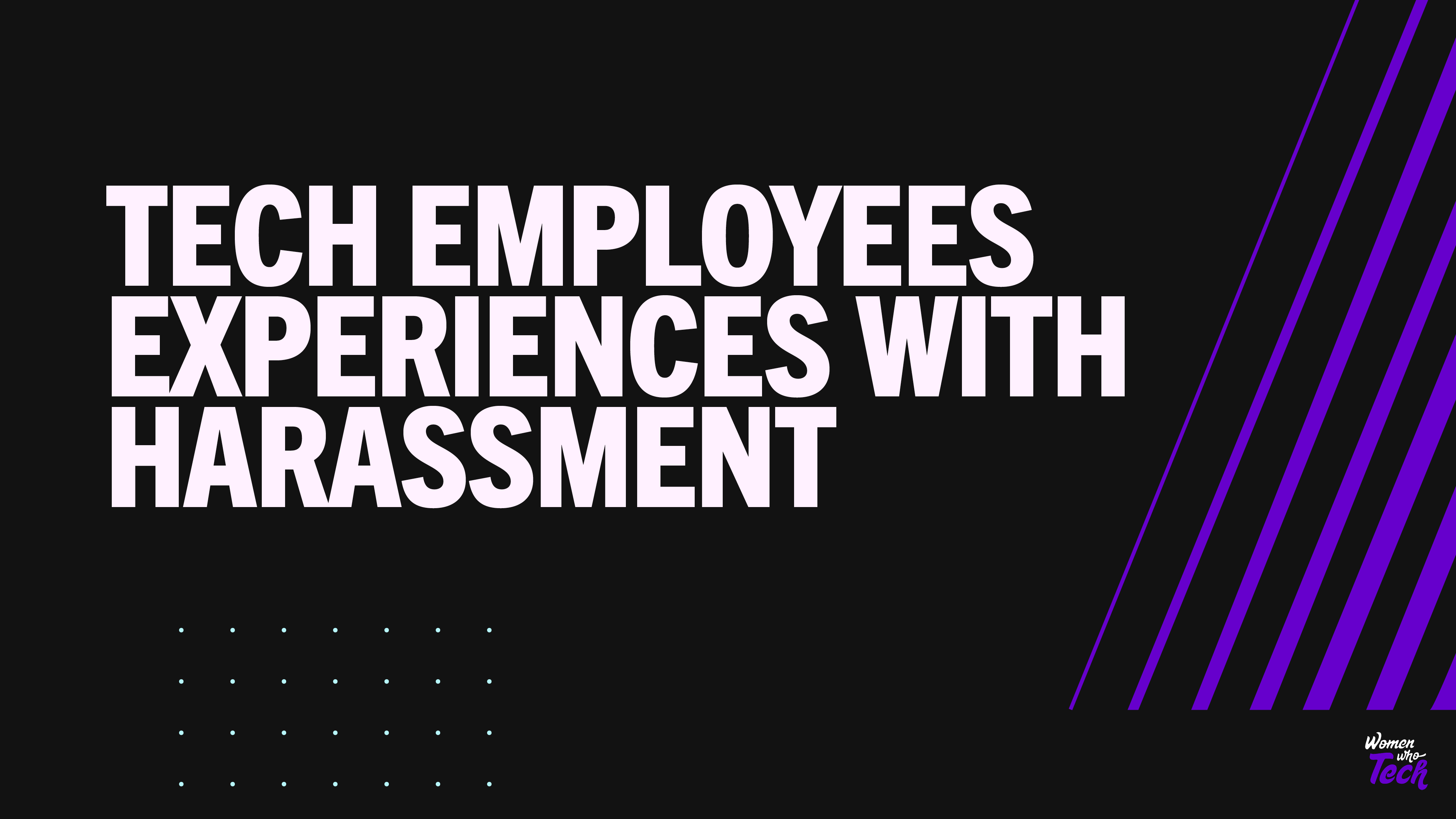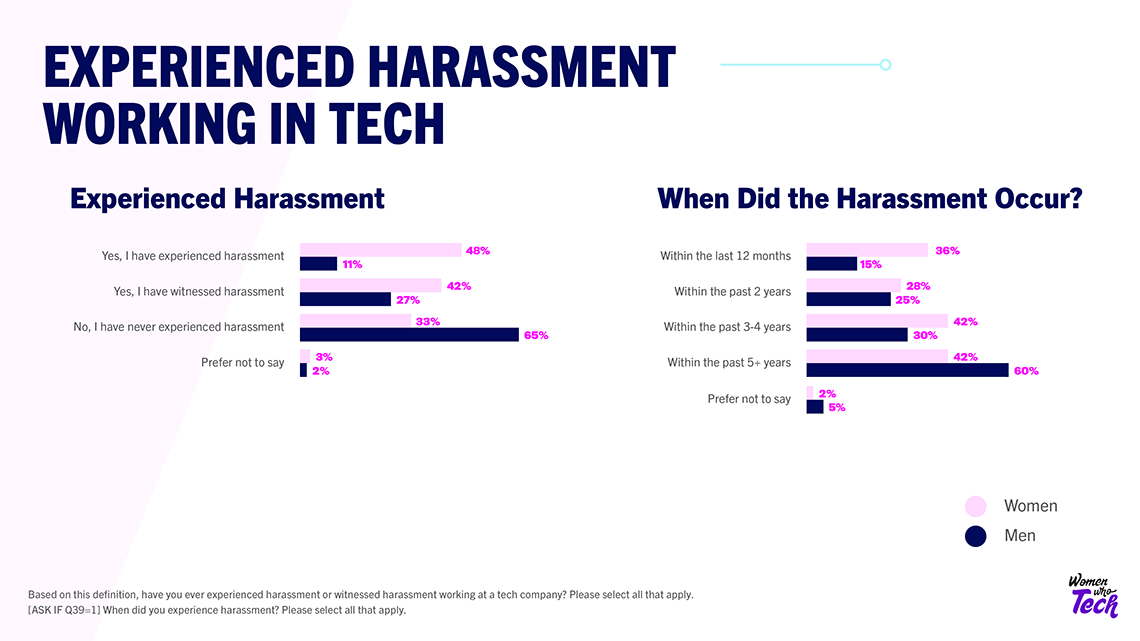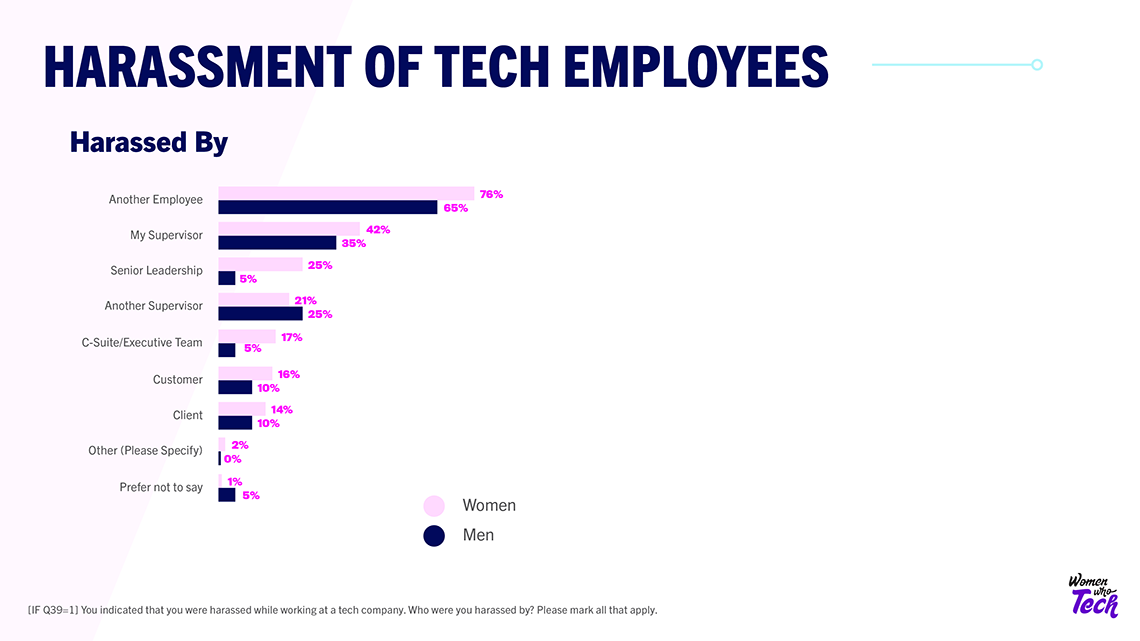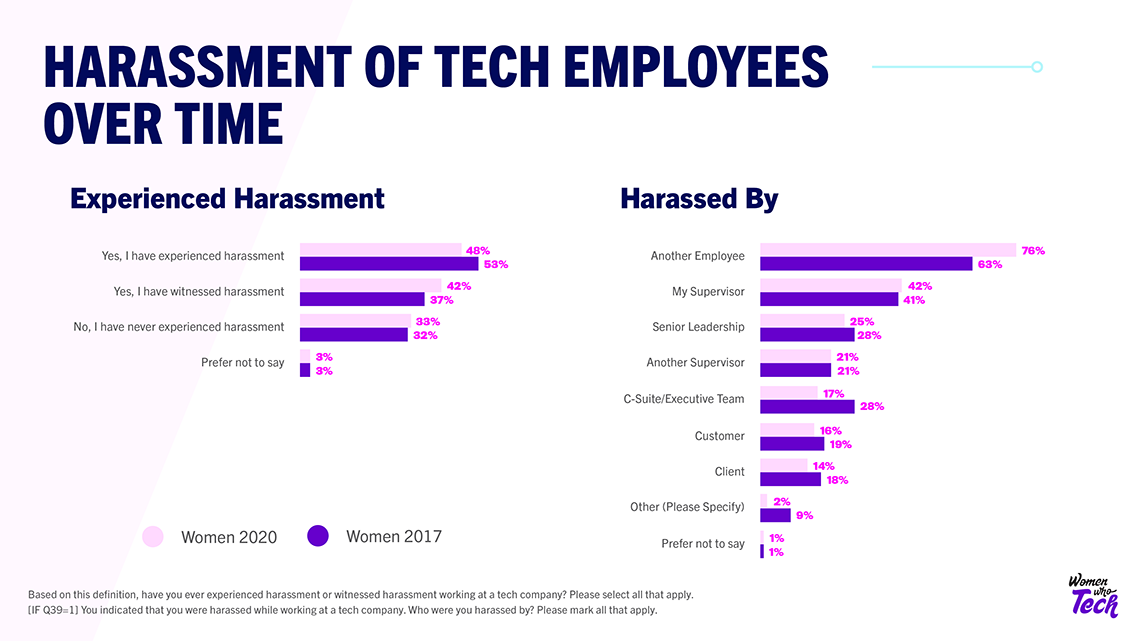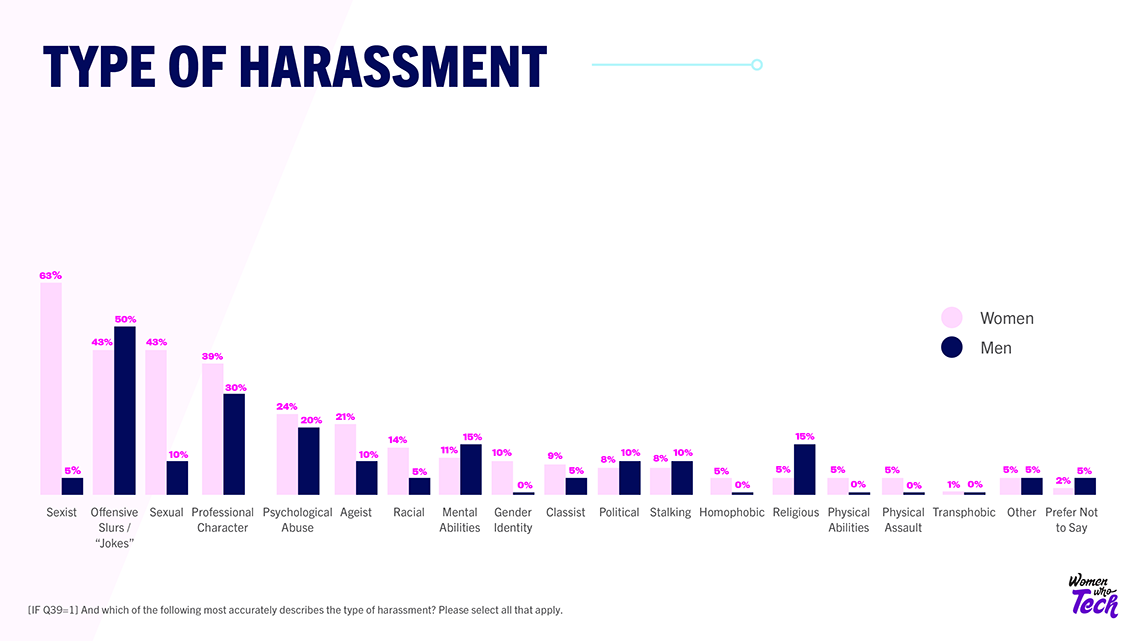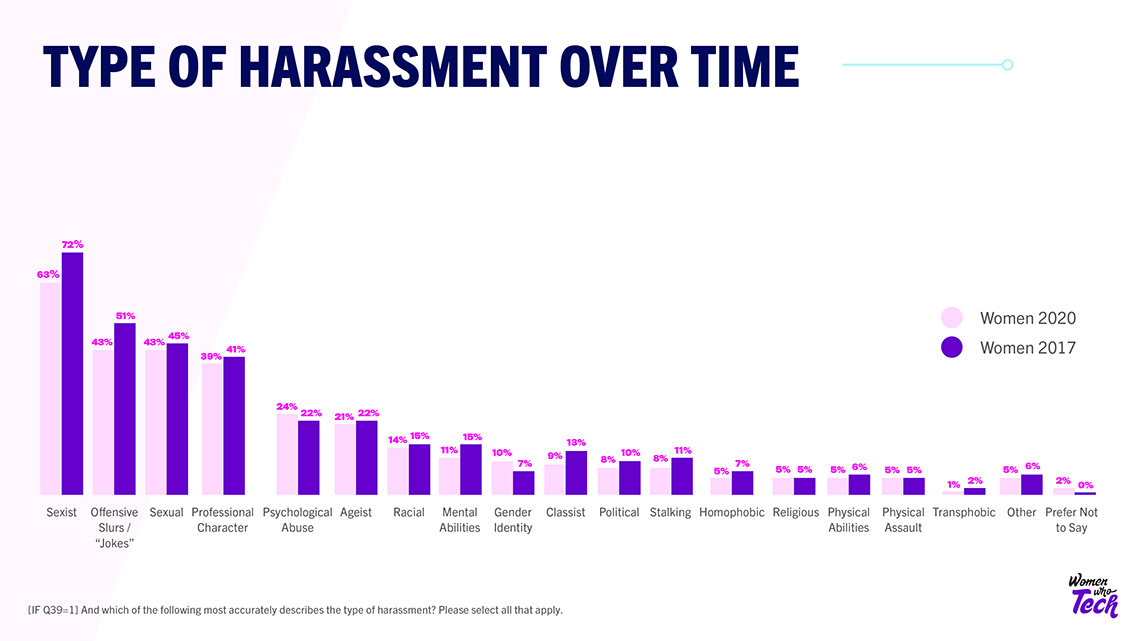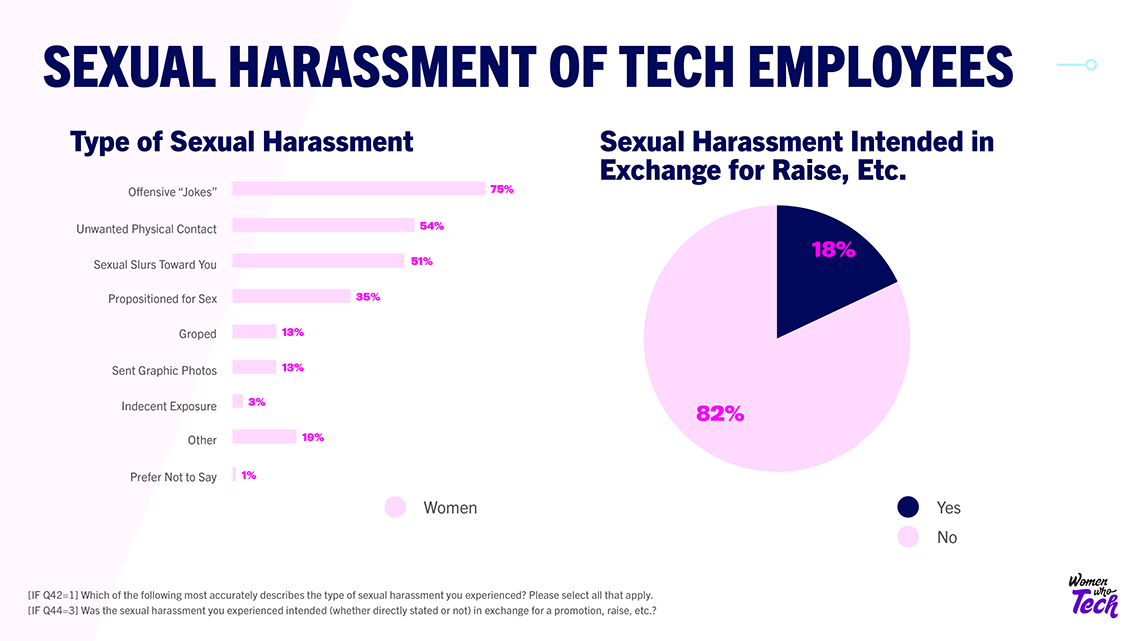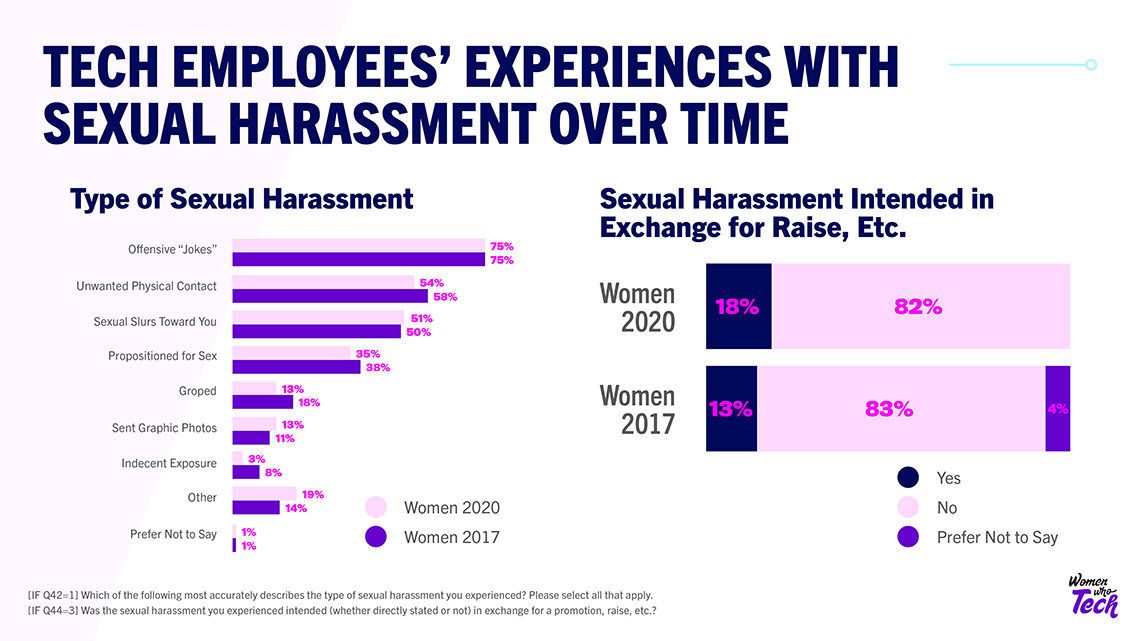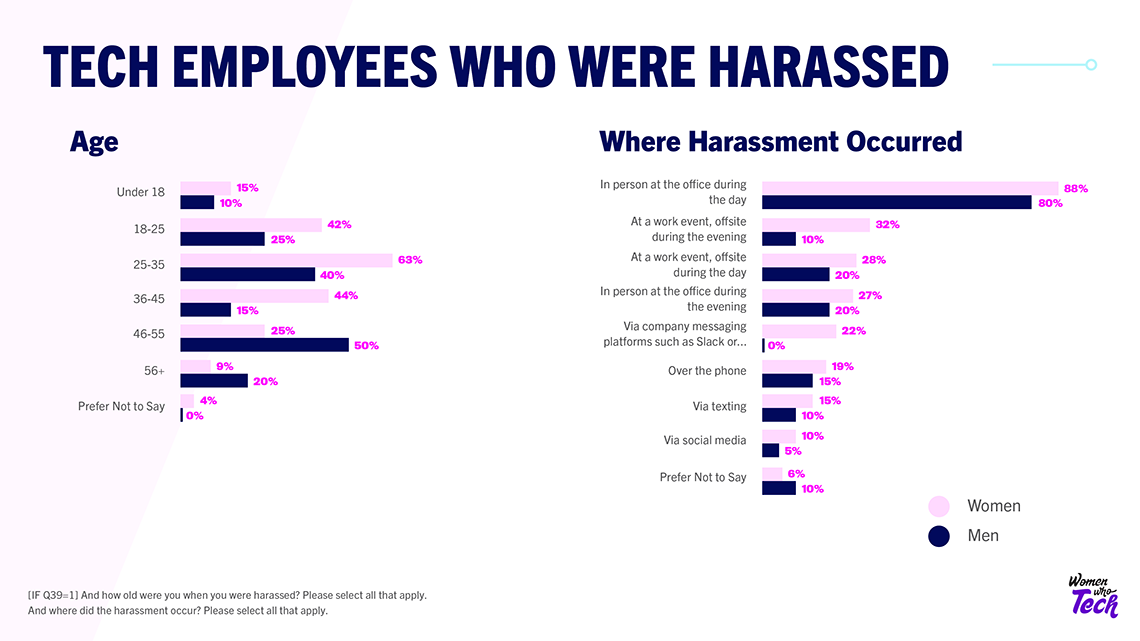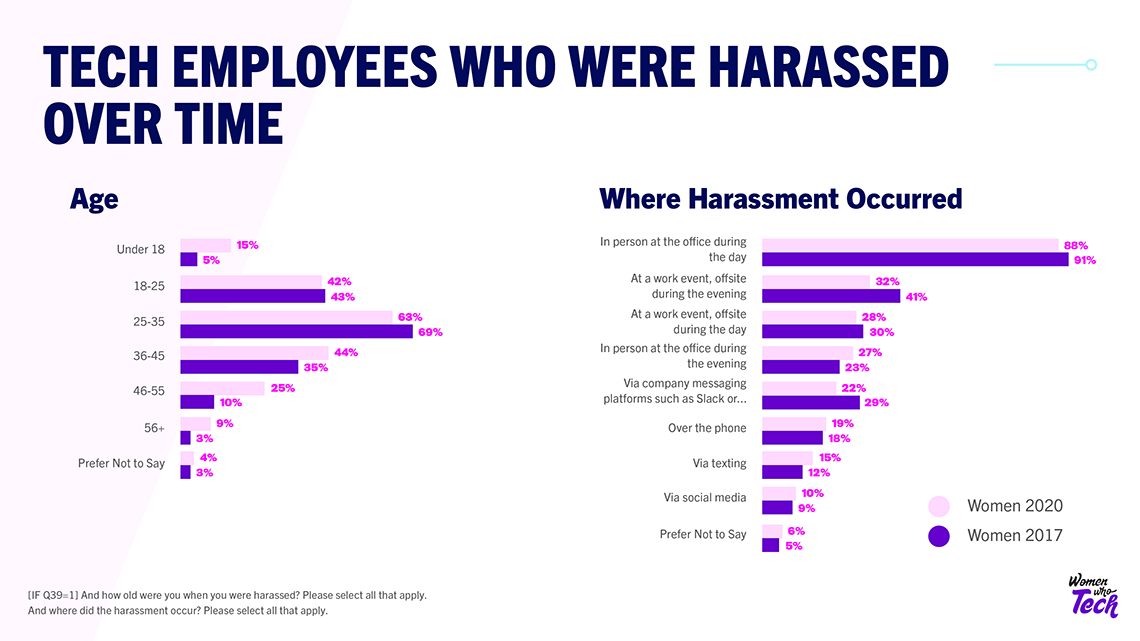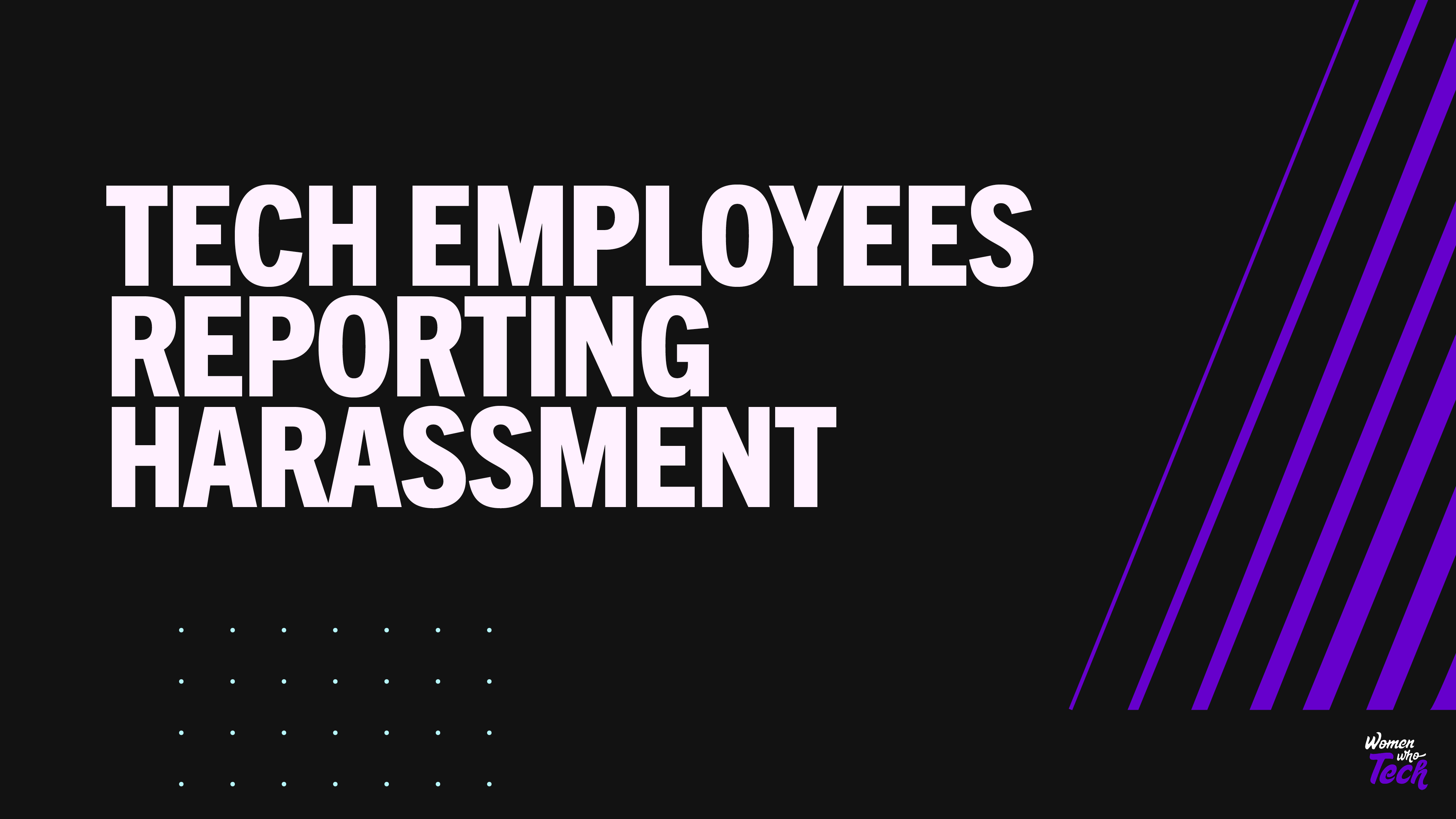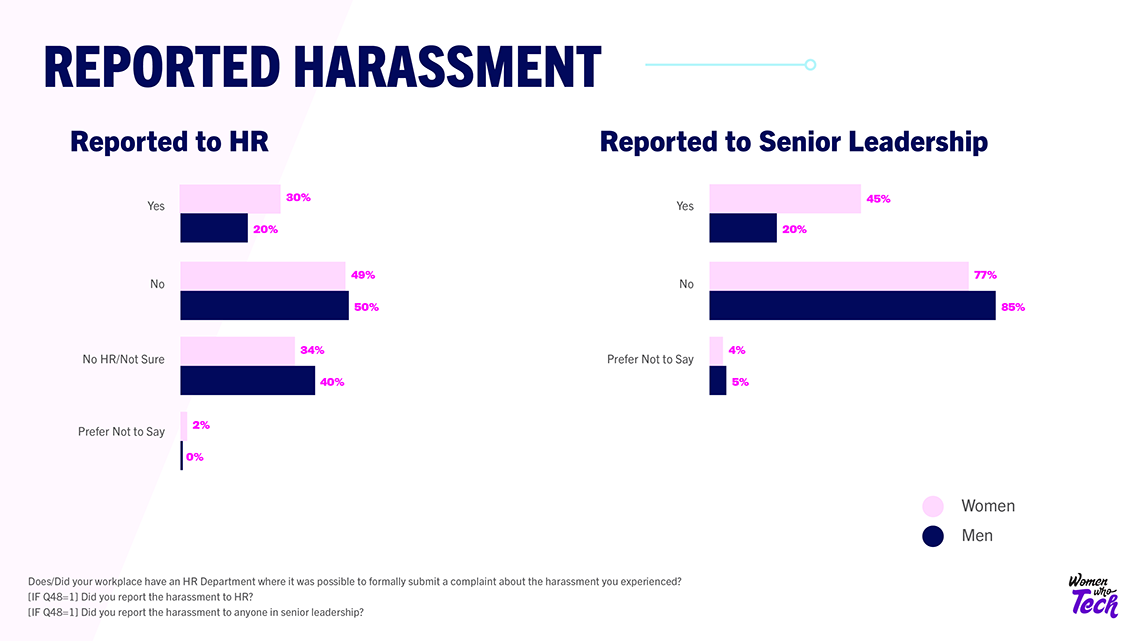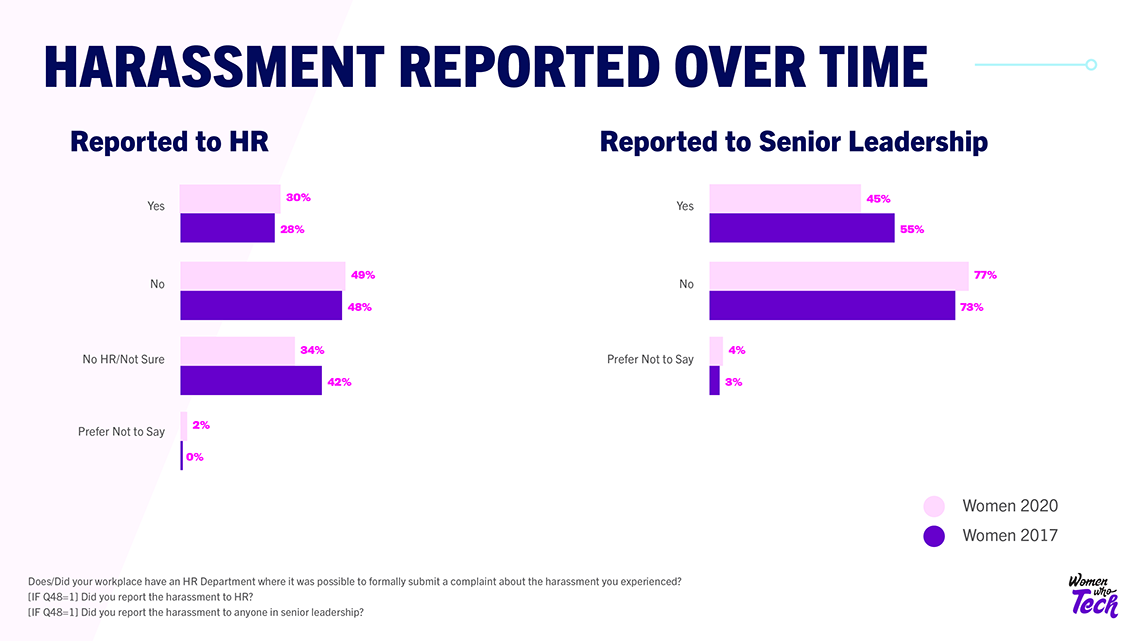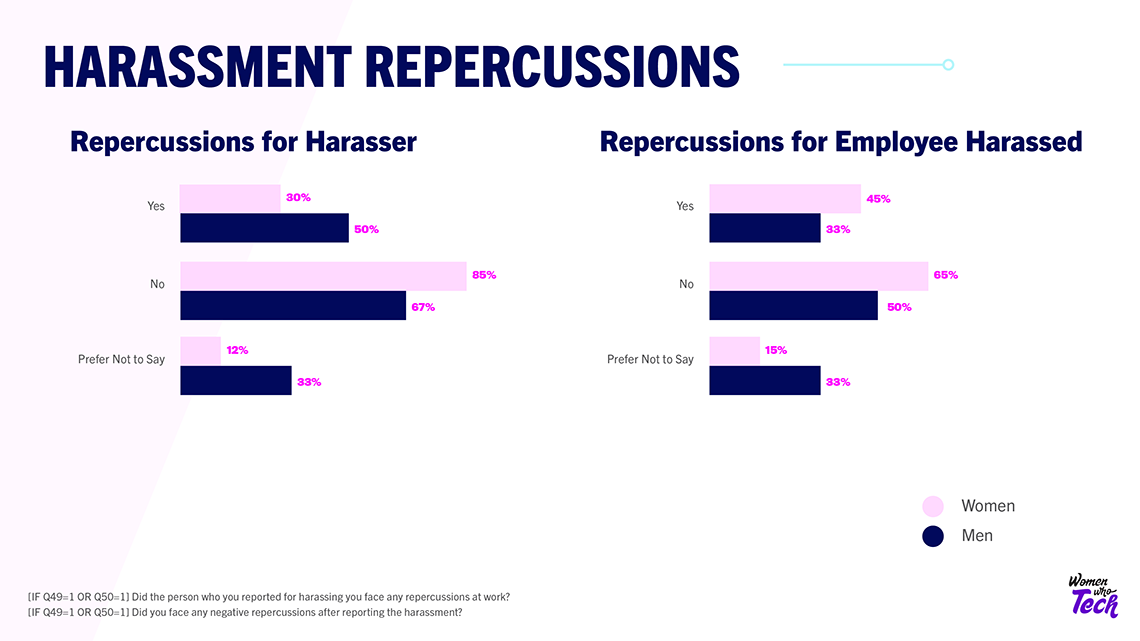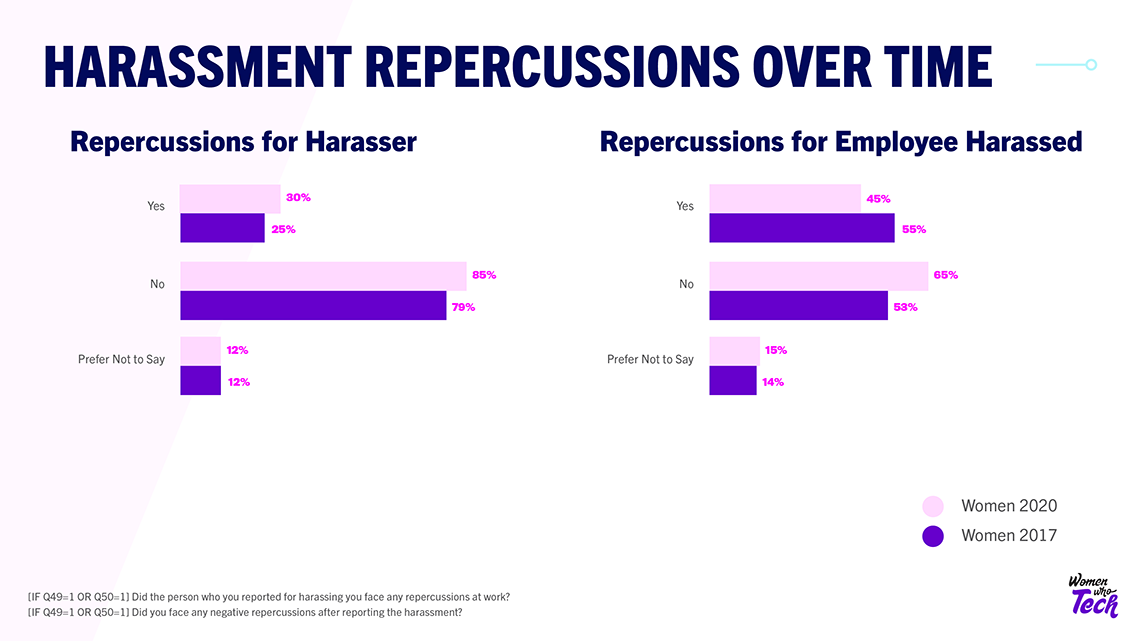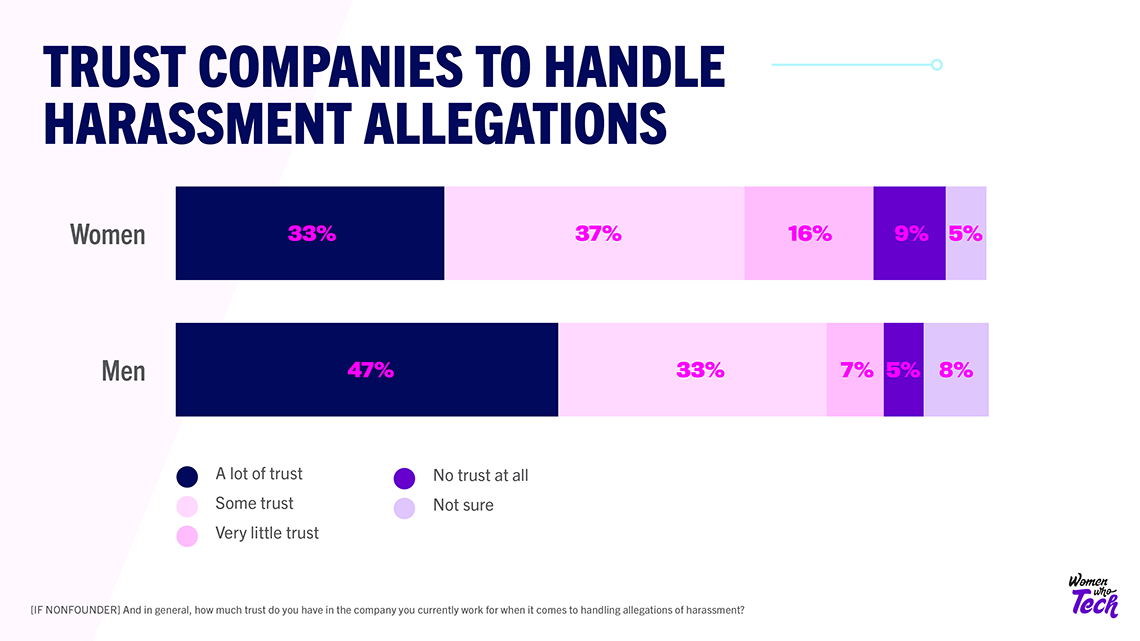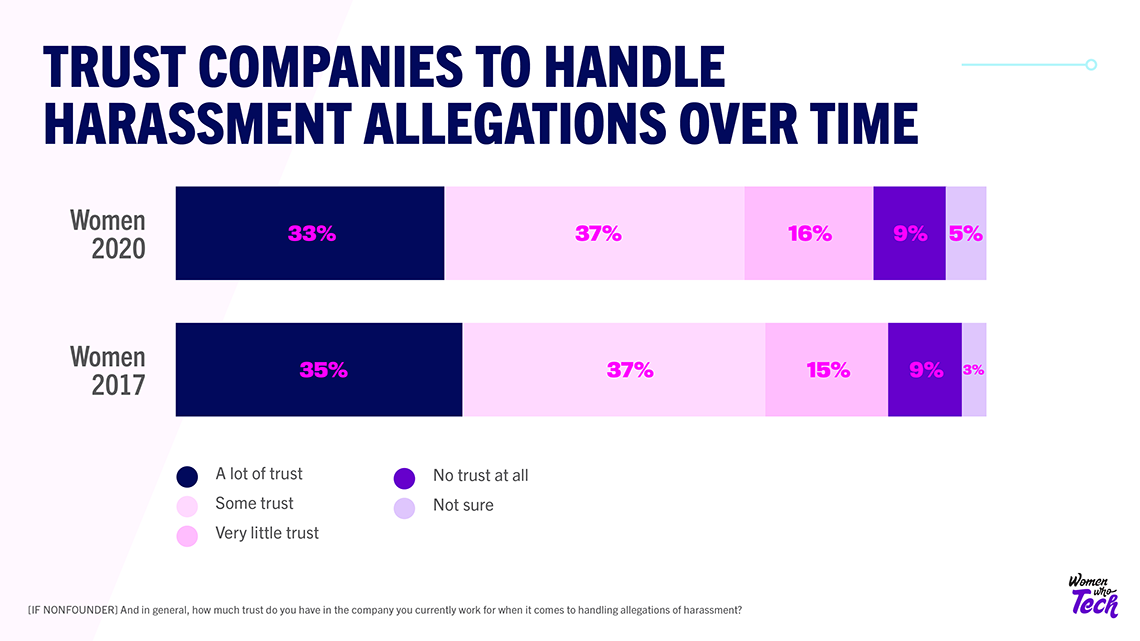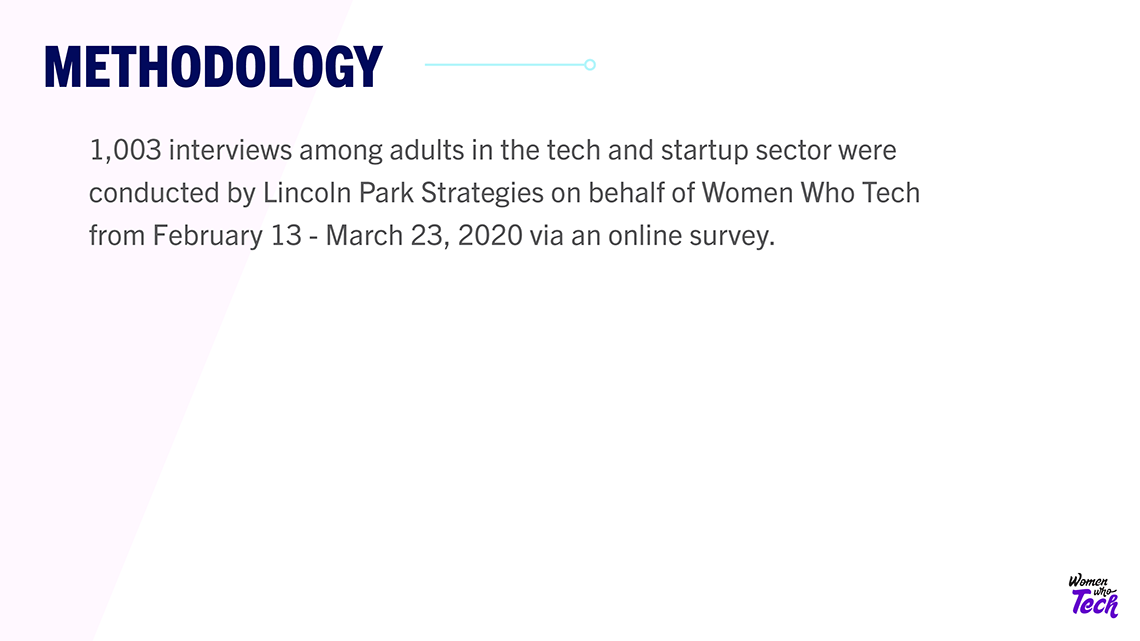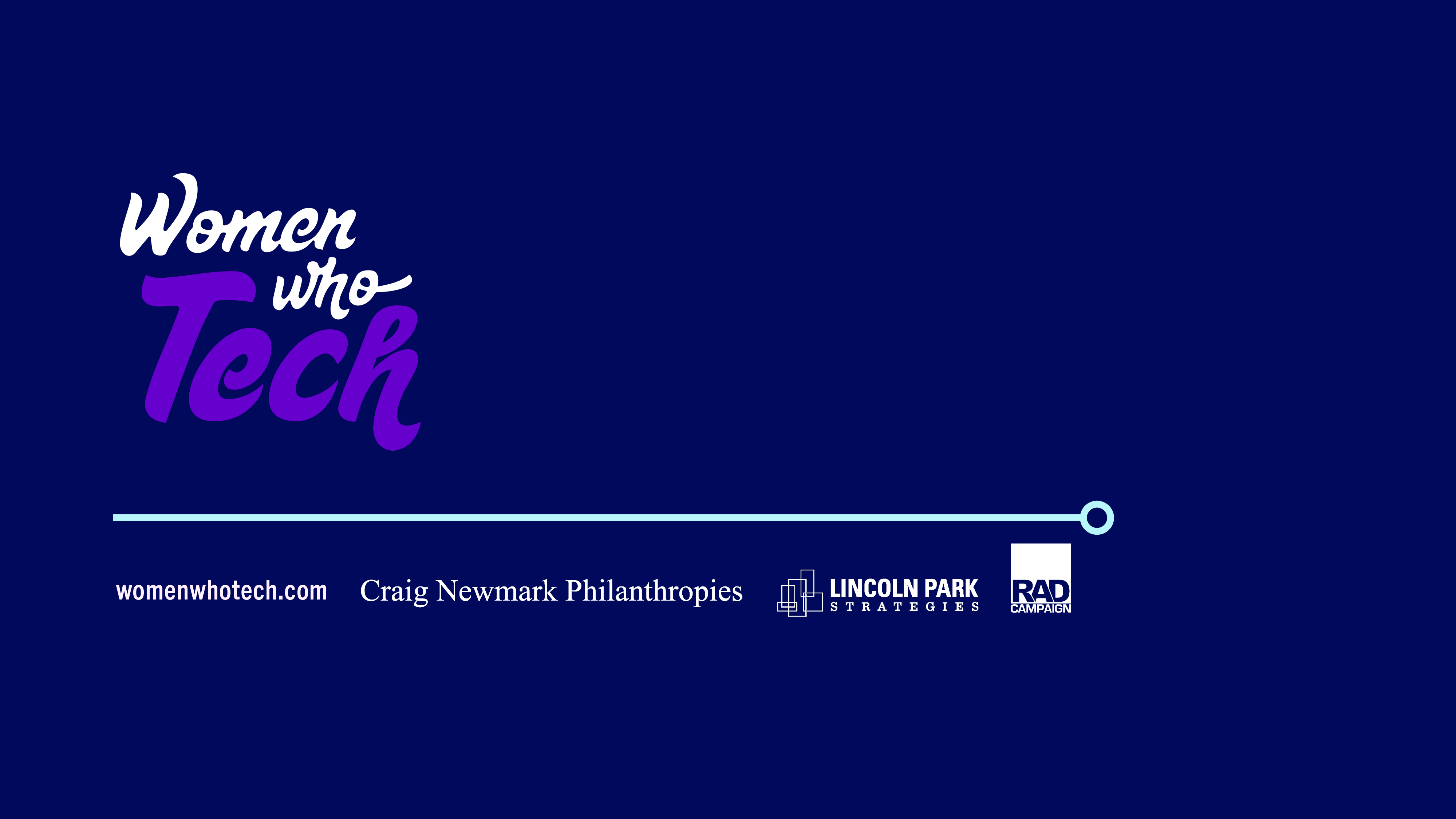Women Who Tech retained polling firm Lincoln Park Strategies to anonymously survey 1,003 tech employees, founders, and investors globally on their experiences in the tech sector.
Our goal with the 2020 survey was to identify what barriers and challenges people face in the tech sector, and track whether the systemic sexism and racism that respondents’ experiences have shifted since our 2017 survey.
This year’s survey paralleled the 2017 survey while introducing new questions around investors’ perception of gender parity in tech and whether investors believe gender plays a role in access to funding. We also incorporated questions around whether women or nonbinary respondents were treated differently than men while working in tech or raising money for their startups.
The #MeToo movement spurred significant publicity, advocacy campaigns, lawsuits, and investments in diversity, equity, and inclusion (DEI) trainings and pledges, but the survey results clearly illustrate that barriers for women, especially women of color, are still being upheld at unprecedented levels.
Special thanks to Craig Newmark Philanthropies and Rad Campaign for their support.
Community Partners
Thank you to our community partners Black Female Founders, Dreamers and Doers, Women 2.0, Women in 3D Printing, and Women of Wearables.
Methodology
The survey was conducted between February 13 - March 23, 2020 via an anonymous online survey. 69% of respondents were women and 29% were men who worked in tech or were startup founders. 169 investors were surveyed and no gender data was collected for investors.
Differentials from 2017 are indicated by parentheses with +/- to show changes in responses over time.
Experiences of Startup Founders in Tech
Women founders continue to be harassed at alarming rates.
- 44% of women founders said they have been harassed.
- 65% of LGBTQ founders say they have experienced harassment.
- 47% of women founders of color say they have experienced harassment.
43% of those who experienced harassment said it occurred within the last 12 months, during and after the peak of the #MeToo movement.
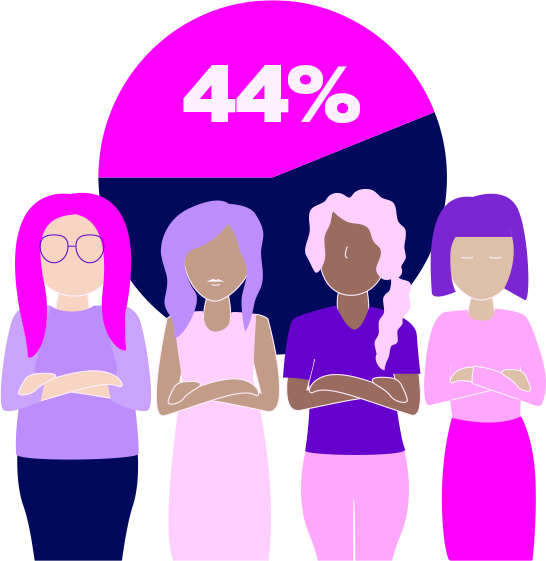
41% of women founders who were harassed experienced sexual harassment.
When asked what kind of sexual harassment, 65% of women founders said they were propositioned for sex. This was up 9% from 2017. In addition:
- 59% of women experienced unwanted physical contact (-3%).
- 56% of women had sexual slurs directed at them (+17%).
- 32% of women were groped (+7%).
- 24% of women were sent graphic photos (+14%).
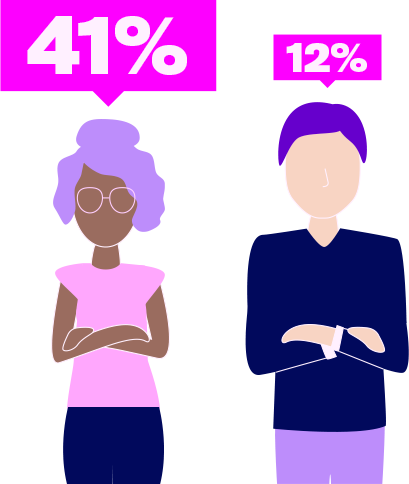
Women of color founders were harassed more by investors.
Of the women of color founders who were harassed, 46% were harassed by a potential investor, compared to 38% of white women founders.

40% of women founders who experienced harassment said they were harassed by an investor.
Of the women founders who experienced harassment by an investor, 59% were explicitly propositioned for sex in exchange for investment funding and introductions.

Nearly 50% of women founders were told they would raise more money if they were a man.
And 55% of women reported differential treatment while raising funding, specifically because of their gender. 35% of men, on the other hand, felt they were treated differently because of their gender.

The majority of men founders say there has been a positive impact since the #MeToo movement. Women founders feel the exact opposite.
69% of white men founders report a positive impact following the #MeToo movement, compared to 34% of white women founders, while 24% of women of color founders report a positive impact.
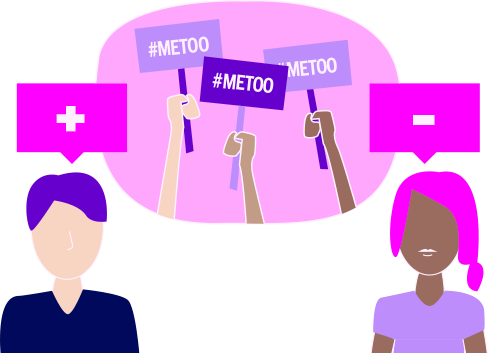
What Do Investors Think?
Most investors said that lack of funding is a VC pipeline problem.
70% of investors believe that the underfunding of underrepresented founders has more to do with investors' pipeline than the lack of deal flow of these demographics.
82% of investors said their firms are implementing diversity, equity, and inclusion practices to expand their portfolios to include more underrepresented founders.

The majority of investors don't think access to funding is an issue.
56% of investors believe that as long as you have a good product idea with a solid business plan and some traction, the tech sector provides the same opportunities for funding regardless of who the founders are.
They said that lack of funding for underrepresented founders really isn’t an issue.

Experiences of Employees Working in Tech
48% of women working in tech experienced harassment compared to 11% of men.
And 42% of women reported witnessing harassment (+5%), compared to 27% of men (-9%).
- 76% of women in tech who experienced harassment said it was by another employee (+13%).
- 42% said their harassment was perpetrated by a supervisor.
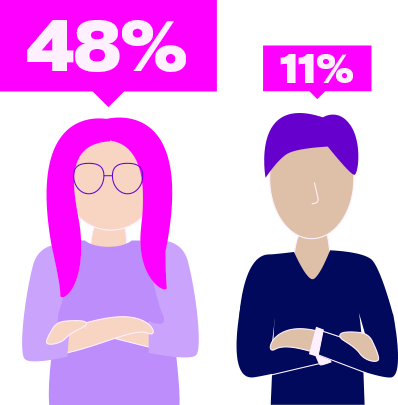
43% of women in tech who said they were harassed were sexually harassed.
- 35% of women in tech who were sexually harassed were propositioned for sex.
- 18% were propositioned for sex in exchange for a promotion (+5%).

Women in tech aren’t reporting the harassment they experience to senior leadership at the same rate as they have previously.
45% of women reported the harassment they experienced to senior leadership, compared to 55% in 2017.
- And 67% said they do not have a lot of trust in how their company would handle allegations of harassment (-2%).
- Men in tech have significantly more trust in how tech companies handle reports of harassment at nearly 50% who have a lot of trust.

70% of women in tech say they have been treated differently at work due to their gender, compared to 11% of men in tech.

